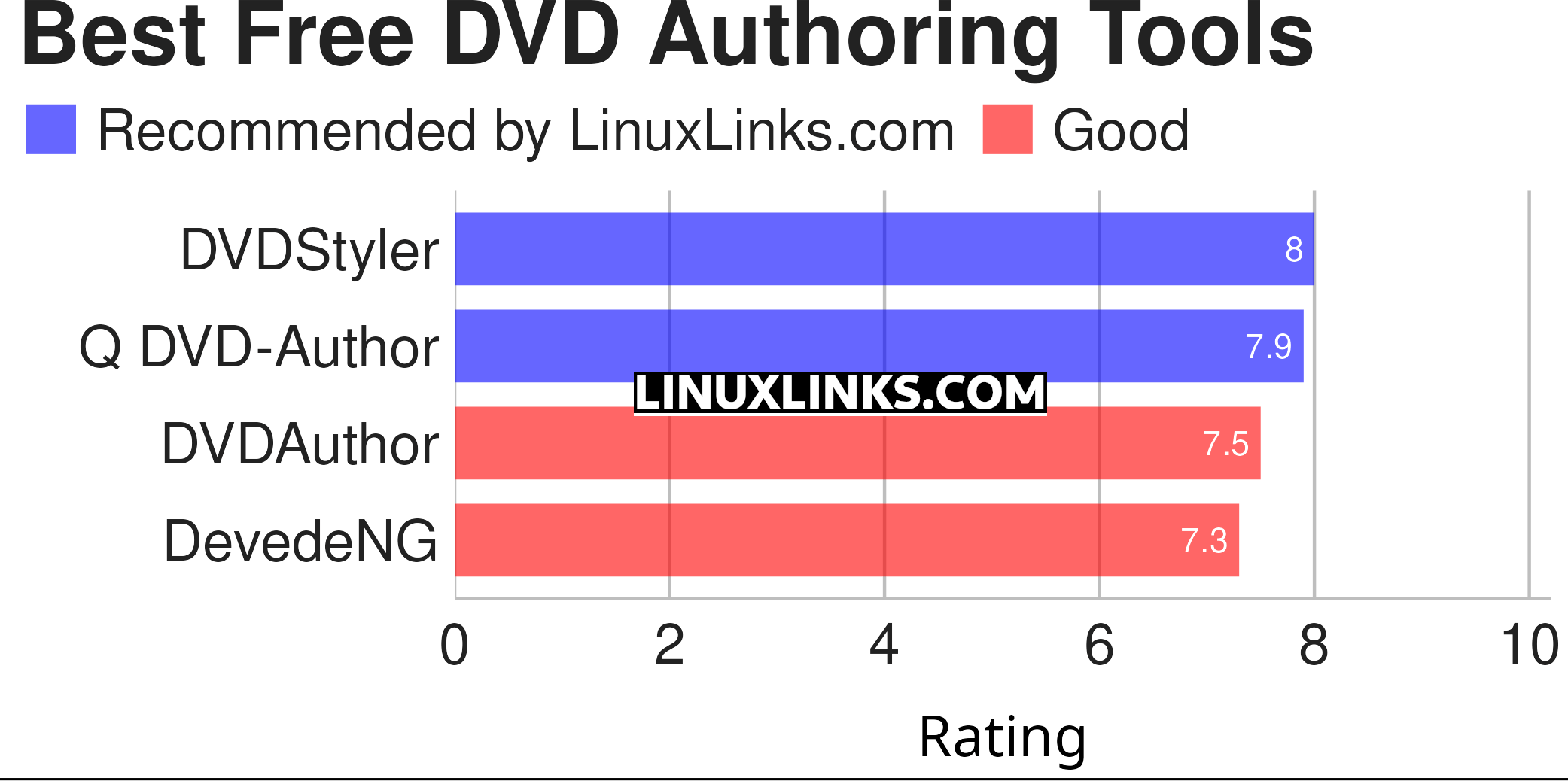DVD authoring is the process of creating a DVD video capable of playing on a DVD player. DVD authoring software must conform to the specifications set by the DVD Forum. DVD videos are logically divided into a first-play section, a set of top-level menus (called VMGM for Video Manager Menus) and one or more video title-sets (VTSs). Each title-set is logically divided into menus and titles, meaning the main content of the disc.
DVD authoring is the second step in the process of producing finished DVDs. The first step is the creation of the movie and the second, the authoring, is the creation of artwork, user menus, insertion of chapter points, overdubs/commentaries, setting autoplay and/or repeat options, etc. The final step is the manufacturing (replication) process to mass-produce finished DVDs.
This article showcases the best free and open source DVD authoring tools that run under Linux.
Here’s our verdict captured in a legendary LinuxLinks-style ratings chart. Only free and open source software is eligible for inclusion.

Let’s explore the 4 tools at hand. For each title we have compiled its own portal page, a full description with an in-depth analysis of its features, a screenshot, together with links to relevant resources.
| DVD Authoring Tools | |
|---|---|
| DVDStyler | Create professional-looking DVDs, photo slideshow, add multiple subtitles |
| 'Q’ DVD-Author | Like DVDStyler, this is a GUI frontend. It's updated to use Qt5 |
| DVDAuthor | Generate a DVD-Video movie from a valid MPEG-2 stream |
| DevedeNG | Python based DVD authoring using DVDAuthor |
This article has been revamped in line with our recent announcement.
 Read our complete collection of recommended free and open source software. Our curated compilation covers all categories of software. Read our complete collection of recommended free and open source software. Our curated compilation covers all categories of software. Spotted a useful open source Linux program not covered on our site? Please let us know by completing this form. The software collection forms part of our series of informative articles for Linux enthusiasts. There are hundreds of in-depth reviews, open source alternatives to proprietary software from large corporations like Google, Microsoft, Apple, Adobe, IBM, Cisco, Oracle, and Autodesk. There are also fun things to try, hardware, free programming books and tutorials, and much more. |
